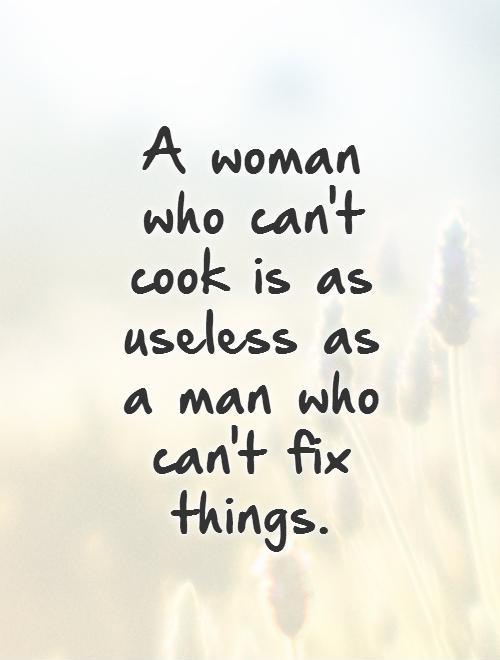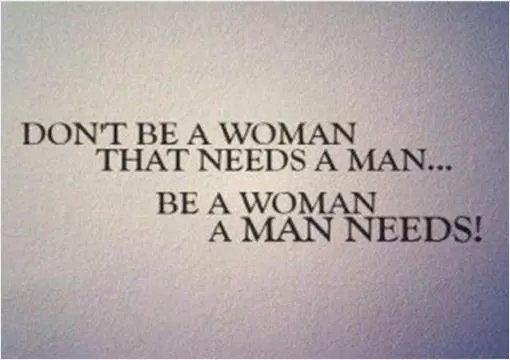A woman who can't cook is as useless as a man who can't fix things.

A woman who can't cook is as useless as a man who can't fix things.
In a society that often places value on traditional gender roles, the statement "A woman who can't cook is as useless as a man who can't fix things" can be seen as a reflection of outdated and harmful stereotypes. This statement implies that a woman's worth is tied to her ability to cook, while a man's worth is tied to his ability to fix things. It perpetuates the idea that women should be responsible for domestic tasks such as cooking, while men should be responsible for tasks that require physical labor or technical skills.However, this statement fails to recognize the diverse talents and abilities of individuals regardless of their gender. Not all women enjoy cooking or have the desire to become skilled in the kitchen. Similarly, not all men are interested in fixing things or have the aptitude for mechanical tasks. To suggest that a woman who can't cook is useless is not only unfair but also dismissive of her other strengths and talents.
Furthermore, this statement reinforces the idea that a woman's value lies in her ability to fulfill traditional gender roles. It suggests that a woman who cannot cook is somehow failing to meet societal expectations and is therefore deemed useless. This narrow-minded view of women's abilities limits their potential and undermines their contributions to society.












 Friendship Quotes
Friendship Quotes Love Quotes
Love Quotes Life Quotes
Life Quotes Funny Quotes
Funny Quotes Motivational Quotes
Motivational Quotes Inspirational Quotes
Inspirational Quotes